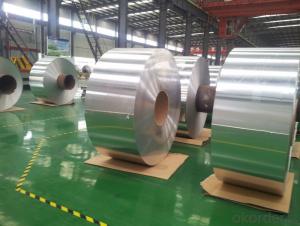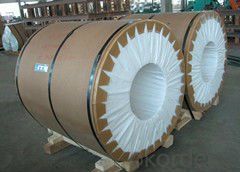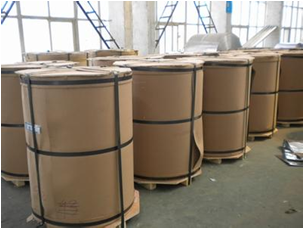6083 T5 Aluminium Alloy Plate/Coil from China
- Loading Port:
- Shanghai
- Payment Terms:
- TT OR LC
- Min Order Qty:
- 5 m.t.
- Supply Capability:
- 90000 m.t./month
OKorder Service Pledge
OKorder Financial Service
You Might Also Like
Item specifice
Specifications
low price with high quality
free sample
efficiently and professionally delivery
good service
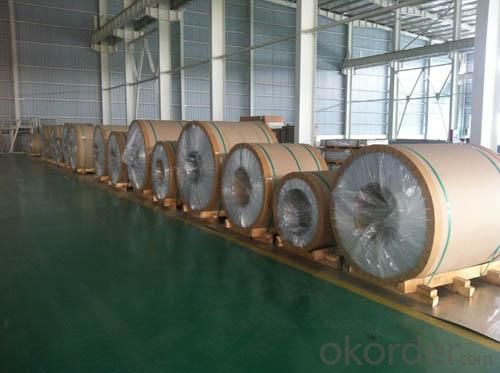
aluminum coil 1050 1060 1070 1100 1235 | | |||
Alloy | Thickness(mm) | Width(mm) | Temper | DC or CC |
0.2-4.0 | 20-1500 | O,H12,H22,H14,H24,H16,H26,H18 | DC, CC | |
4.0-12.0 | 1000-1900 | H111,H112 | DC | |
ID | 505mm,75mm,150mm etc. | |||
Packing | eye to wall | | ||
eye to sky | | |||
Application | Mainly in printing(PS plate base), Aluminum-plastic composite panel base, construction, decoration, capacitor, cover material, deep drawing products, refrigeration, air conditioner, automobile etc. | |||
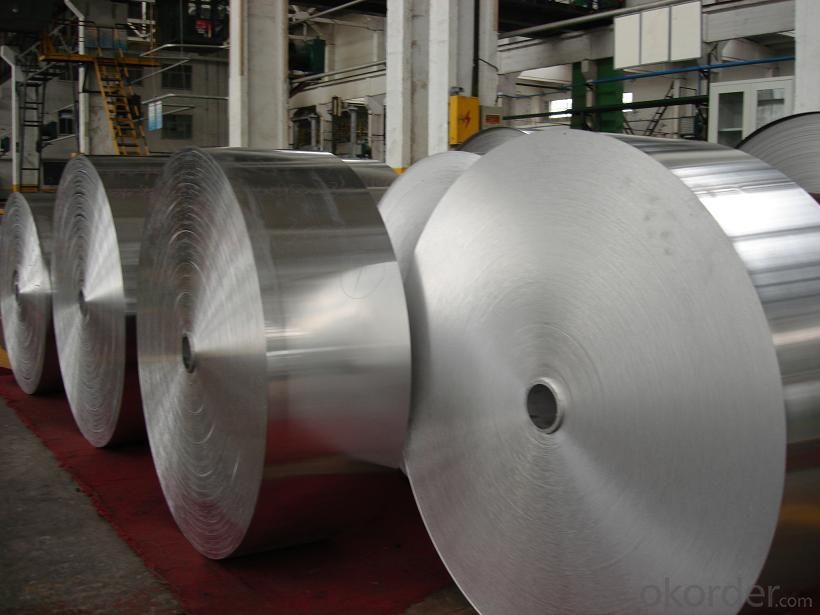
6000 series aluminium alloy plate, generally called Al-Mg-Si alloy, the magnesium and silicon are used as main alloy element. Feature: most the advantages of 4000 series & 5000 series alloy, good corrosion resistant performance, well welding property, good oxidability, easy to spray-finishing,well oxidation coloring, good machinability, middle strength, often used used after heat treatments.
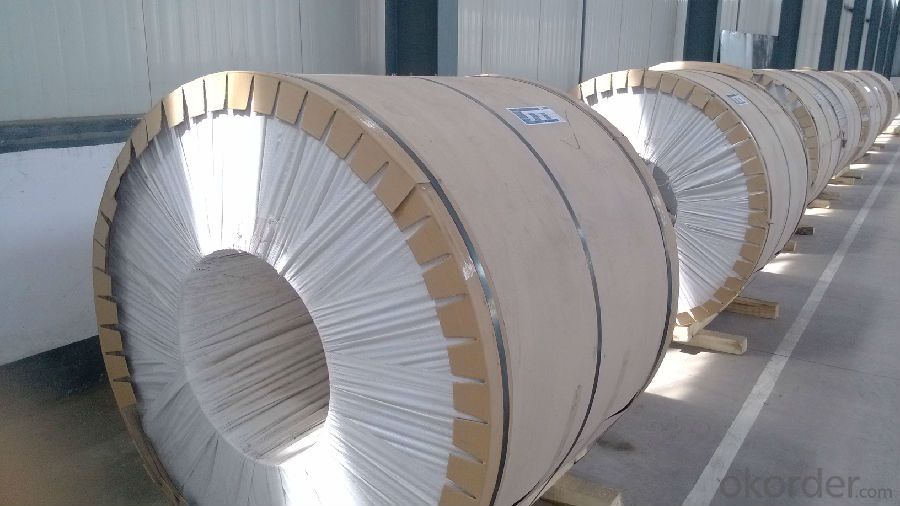
- Q:What’s the standard of tensile strength and ductility of aluminum coil 3003?
- Detailed description can help resolve problems quickly. Performance and status is a related. As aluminum coil is usually semi-hard, the tensile strength is greater than or equals 150, ductility is greater than or equals 12.
- Q:We are shopping for a new LQ trailer. We are looking at several different brands and noticed that some have aluminum skin on an aluminum frame, and others have aluminum skin on a steel frame. Other than the obvious differences in weight and cost, what are other benefits/disadvantages of each? Thanks
- Well, you already know the differences in weight and cost, so I won't address those. Advantages to an aluminum frame are that it will not rust although it may corrode. However, most steel frames now are coated to protect them from the elements and prevent rusting. Or, the steel can be galvanized. So, if you get a steel frame, check for this. Aluminum is a more brittle metal than steel, so some people think that is does not perform as well in a crash. However, there are no horse trailer crash statistics published to prove or disprove this. The flip side is that a steel frame can have hidden rust weakening it and making it perform poorly in a crash. Should something happen to your frame, steel is often reparable, while aluminum sometimes is not and the trailer is totaled. Aluminum is more difficult to weld than steel.
- Q:Can aluminum coils be used for solar panel applications?
- Yes, aluminum coils can be used for solar panel applications. Aluminum is a lightweight and durable material that is commonly used in the construction of solar panels. It is an excellent conductor of electricity, making it ideal for capturing and conducting solar energy. Aluminum coils can be used as a backing material for solar panels, providing structural support and helping to dissipate heat. Additionally, aluminum has good corrosion resistance, which is important for solar panels that are exposed to various weather conditions. Overall, aluminum coils are a popular choice for solar panel applications due to their strength, conductivity, and resistance to corrosion.
- Q:Are there any restrictions on the export or import of aluminum coils?
- Yes, there are restrictions on the export or import of aluminum coils. These restrictions can vary from country to country and are typically imposed to protect domestic industries, ensure national security, or comply with international trade agreements. Governments may impose import or export duties, quotas, licensing requirements, or impose restrictions on certain countries for political or economic reasons. It is important to consult the specific regulations and trade policies of the countries involved to understand the exact restrictions in place.
- Q:How to calculate the wall thickness with the gross weight of aluminum coil known?
- Gross weight*density=volume volume÷(aluminum sheet *width)=thickness
- Q:How are aluminum coils used in HVAC systems?
- Aluminum coils are used in HVAC systems for their efficient heat transfer capabilities. They are typically used in air conditioning units and heat pumps to cool or heat the air that circulates through the system. The coils play a crucial role in the refrigeration cycle by absorbing heat from the indoor air and releasing it outside. The lightweight and corrosion-resistant properties of aluminum make it an ideal material for these coils, ensuring efficient and reliable performance in HVAC systems.
- Q:What is the minimum thickness available for aluminum coils?
- The minimum thickness available for aluminum coils typically ranges from 0.01mm to 0.2mm, depending on the specific requirements and manufacturing capabilities.
- Q:What are the common problems faced with aluminum coils?
- Aluminum coils encounter various issues that commonly arise. The foremost predicament is corrosion, which poses a significant threat to aluminum coils, especially when they come into contact with moisture. Consequently, rust or other types of corrosion may develop, thereby weakening the coil and impacting its performance. Another prevalent problem is coil damage, which can be easily incurred during handling or transportation. This can result in coils becoming bent or dented, thus compromising their efficiency and lifespan. In severe cases, leaks or cracks may even manifest, leading to the leakage of refrigerant or coolant. Clogging is an additional concern that can manifest in aluminum coils. Over time, dust, dirt, and debris can accumulate on the coil, thereby obstructing airflow and diminishing the coil's efficiency. This can lead to subpar cooling or heating performance, heightened energy consumption, and increased wear and tear on the system. Furthermore, aluminum coils are susceptible to leaks. These leaks may stem from physical damage, corrosion, or manufacturing defects. Once a coil develops a leak, refrigerant or coolant may escape, consequently impacting the overall performance of the HVAC system. Lastly, improper installation or maintenance practices can also give rise to issues with aluminum coils. If the coil is not installed accurately or if regular maintenance is overlooked, problems such as inadequate airflow, inefficient cooling or heating, and heightened energy consumption may occur. To circumvent these common problems, it is imperative to adequately maintain aluminum coils by regularly cleaning them, inspecting for signs of damage or corrosion, and ensuring proper installation and handling. Consistent maintenance and timely repairs can mitigate the occurrence of these problems and guarantee the longevity and efficiency of the aluminum coils.
- Q:Can aluminum coils be used in high-magnetic field applications?
- Indeed, high-magnetic field applications can make use of aluminum coils. Being a non-magnetic material, aluminum lacks any magnetic properties, rendering it appropriate for such applications. This is particularly beneficial as the presence of a magnetic field could potentially disrupt the coils' performance or function. Consequently, aluminum coils find wide utilization across diverse industries, such as electrical engineering, aerospace, and automotive, all of which frequently encounter high-magnetic fields. Furthermore, aluminum boasts a lightweight nature and excellent electrical conductivity, making it an optimal selection for applications that necessitate efficient and lightweight coil designs.
- Q:Can aluminum coils be used for heat exchangers?
- Indeed, heat exchangers can make use of aluminum coils. Aluminum has gained popularity as a favored option for heat exchangers owing to its exceptional thermal conductivity, light weight, and resistance to corrosion. These coils usually find application in scenarios where heat transfer is necessary, such as HVAC systems, refrigeration units, and automotive radiators. Aluminum's high thermal conductivity enables efficient heat transfer, while its corrosion resistance guarantees durability and an extended lifespan for the heat exchanger. Moreover, aluminum coils can be effortlessly molded into different shapes and sizes, thereby showcasing their versatility for various heat exchanger designs.
1. Manufacturer Overview |
|
|---|---|
| Location | |
| Year Established | |
| Annual Output Value | |
| Main Markets | |
| Company Certifications | |
2. Manufacturer Certificates |
|
|---|---|
| a) Certification Name | |
| Range | |
| Reference | |
| Validity Period | |
3. Manufacturer Capability |
|
|---|---|
| a)Trade Capacity | |
| Nearest Port | |
| Export Percentage | |
| No.of Employees in Trade Department | |
| Language Spoken: | |
| b)Factory Information | |
| Factory Size: | |
| No. of Production Lines | |
| Contract Manufacturing | |
| Product Price Range | |
Send your message to us
6083 T5 Aluminium Alloy Plate/Coil from China
- Loading Port:
- Shanghai
- Payment Terms:
- TT OR LC
- Min Order Qty:
- 5 m.t.
- Supply Capability:
- 90000 m.t./month
OKorder Service Pledge
OKorder Financial Service
Similar products
New products
Hot products
Related keywords
